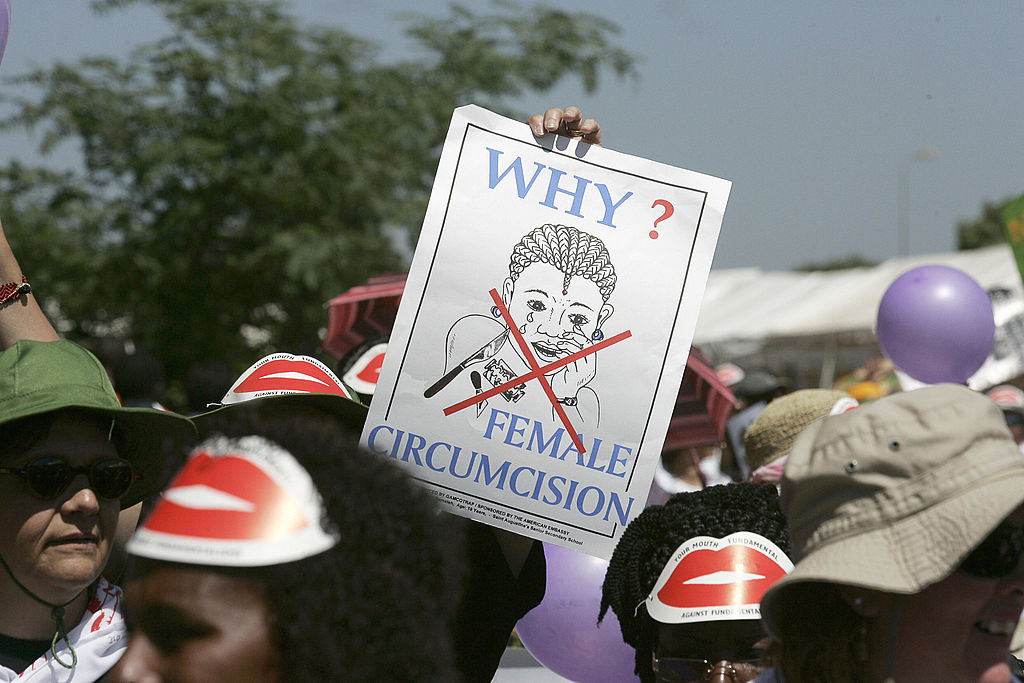
Kenyan elders pledge support for war against female genital mutilation

Kenya’s battle against female genital mutilation (FGM) got a boost on Thursday as religious and cultural leaders vowed to crusade against the harmful practice that is rampant among nomadic communities.
Kenyan elders made the declaration to support the fight against female genital cut at a high-level forum ahead of next week’s International Conference on Population and Development (ICPD) to be held in Nairobi.
Senior government officials, diplomats and campaigners attended the forum and welcomed the renewed commitment towards elimination of female genital cut that affects 21 percent of Kenya’s female population.
“The government welcomes the commitment by religious and cultural leaders from communities to end practice of FGM by 2022,” said Rachael Shebesh, Chief Administrative Secretary in the Ministry of Gender and Youth.
Shebesh said the Nov.12-14 global population summit is expected to revitalize debate on ending harmful practices like FGM and early marriages that have worsened violation of women’s rights and dignity.
The official said the government will bank on elders and other opinion-shapers to sensitize communities on the need to abandon circumcision for women and girls amid negative physical and psychological impacts.
“We are confident the elders will use their influence to enlighten communities on the hazards associated with FGM that has been outlawed in the country and across the world,” said Shebesh.
Kenya has enacted legislation that prohibits female genital cut in line with global commitment to protect women and girls from all forms of abuse and discrimination.
Agnes Pareiyo, chairperson of Anti-FGM Board said that progressive legislation coupled with sensitization campaigns is behind the decline of female genital cut among women aged 15 to 49 years from 38 percent in 1999 to the current 21 percent.
“The enactment of progressive laws has reduced FGM prevalence in the country though we are still grappling with hurdles linked to ignorance, poverty and retrogressive cultural belies that disregard the rights of women,” said Pareiyo.
She said that the medicalization of FGM and its reemergence among communities that had abandoned the practice have stalled its eradication.
Ademola Olajide, UNFPA Kenya Country Representative said that strategic engagement with elders will enable policymakers to come up with high impact interventions geared towards eradication of female genital cut.






